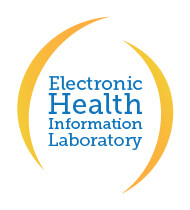The development and application of digital solutions to address challenges across all sectors requires access to and sharing of data. This, in turn, fosters innovation, collaboration and transparency, but comes with relevant privacy considerations. Anonymization (or de-identification) is one approach to address these concerns. To anonymize data, it is manipulated in a way that it can no longer be related to a person. Manipulation can, however, result in relevant utility constrains. This is typically referred to as privacy-utility trade-off. While anonymization has been studied extensively in theory, a wide application in real-world is still missing and access to individual-level data remains a challenge.
In this webinar, Lisa Pilgram presents an example application of anonymization in the field of nephrology. She contrasts two approaches: anonymization with multiple likely uses in mind versus anonymization customized towards downstream analyses. In this context, she shows how theoretical anonymization considerations translate into settings in the commonly used open-source software tool ARX. Results show if and how the privacy-utility trade-off can be overcome in this clinical research scenario. The focus is on utility and attention drawn to potential pitfalls. Based on the findings, reasons for the the challenges in the adoption of anonymization are explored.
This webinar is directed at clinicians and researchers who want to share health care data, who are looking for practical examples or who are just interested in discussing the benefits and limitations of anonymization in clinical datasets.
Lisa is a clinician scientist and currently a Postdoctoral Fellow at EHIL. Her research interest involves sharing of healthcare-related data, with a particular focus in privacy-enhancing technologies. She has previously worked on anonymization (de-identification) and is now exploring the potential of synthetic data in this field. Lisa’s clinical expertise lies in internal medicine - nephrology.
